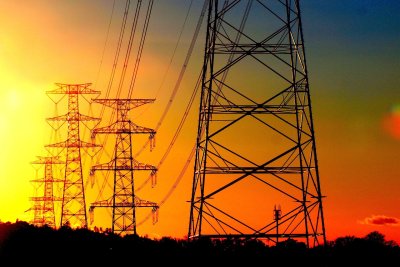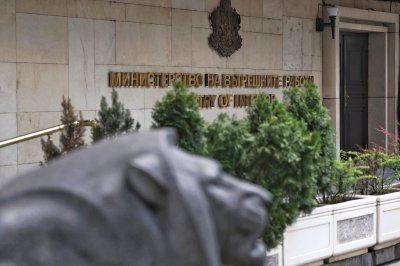The Ukrainian Chamber of Commerce and Bulgaria’s Ministry of Transport are discussing the establishment of a joint logistics centre in Bulgaria. The country is keen to participate in Ukraine’s post-war reconstruction, with energy and agriculture identified as leading sectors in bilateral economic relations. This was highlighted during a bilateral business forum held in Sofia on October 22.

Participants at the Bulgarian-Ukrainian business forum agreed that Bulgaria could become a crucial economic hub for Ukraine and Ukrainian businesses seeking access to the Balkans and the European Union. The forum brought together business representatives from Kyiv, as well as from Odesa and the surrounding region, which plays a significant role in Ukraine’s national economy. According to Olesya Ilashchuk, Ukraine’s ambassador to Bulgaria, Bulgaria remains Ukraine’s most important trading partner in the Balkans—a key element of Kyiv’s economic diplomacy even amid the Russian invasion over the past four years.
Olesya Ilashchuk, Ukrainian Ambassador to Bulgaria:
“For the second consecutive year, in cooperation with the Ukrainian Chamber of Commerce and the Bulgarian Chamber of Commerce and Industry, we are holding a Ukrainian-Bulgarian business forum in Sofia. Traditionally, Bulgaria is Ukraine’s largest trading partner in the Balkan region and is also an important market for Ukrainian goods. Bulgaria is a key partner for our joint access to third-country markets. Ukraine’s share in Bulgaria’s trade turnover continues to grow.”
Artem Rybchenko, Deputy Minister for Communities, Territories, and Infrastructure Development, called on Ukraine’s partners to participate in various practical projects.

Artem Rybchenko, Deputy Minister for Communities, Territories, and Infrastructure Development:
“We operate in many different sectors, and when we talk about reconstruction, we mean recovery across social, medical, and analytical spheres. I am confident that Bulgarian businesses will find their place, and we will always provide support at all levels. We are targeting various regions and communities most in need, as well as the civilian population there. At the same time, there are business-oriented projects that are straightforward, useful, important for Ukraine, and profitable for companies. As they say, new contacts bring new contracts.”
Hennadiy Chyzhykov, head of the Ukrainian Chamber of Commerce, is convinced that Bulgaria and Ukraine are natural friends and economic partners, and that Bulgaria’s role for Ukraine is increasingly important—not only for the Black Sea corridors but also due to the significance of the Danube River, which can provide rapid access for Ukrainian goods to the EU market.
Hennadiy Chyzhykov, Head of the Ukrainian Chamber of Commerce:
“Our message is simple: we see new opportunities for cooperation in logistics and infrastructure. Bulgaria is becoming an increasingly interesting country for goods transit because Ukraine is export-oriented, and cooperation with the world—Asia, Africa, and Europe—is essential. Bulgaria is already playing and will continue to play a greater role. We met with the Ministry of Transport and are considering opening a Ukrainian logistics centre in Bulgaria to make better use of the maritime and river corridors near Varna, Burgas, and Ruse. Ukraine is very strong in agriculture, so we are inviting Bulgarian capital and food-processing companies to collaborate. Bulgaria has also made remarkable progress in IT and programs like ‘Ukraine Too.’ By combining efforts, we can become leaders in European and possibly global markets. Bulgaria has proven its importance and experience on the path to European integration, and we see it as a reliable partner for Ukraine. Year by year, our trade and contacts continue to grow—even during the war—allowing us to discuss strategic relations between our countries.”
Energy and agriculture remain key sectors in our bilateral economic relations. Dmytro Isachenko, who runs a company developing energy projects and operating between Bulgaria and Ukraine, commented that Bulgaria can play a valuable role, as it has many specialists and companies capable of participating in the reconstruction of Ukraine’s destroyed energy infrastructure.
Dmytro Isachenko, Ukrainian businessman:
“We need new construction of power plants in Ukraine. We need specialists. We require a lot of technology and investment now, and private investments are being directed to Ukraine’s electricity market. These are very large investments because the market is huge. This is also advantageous for investors, as they can recover their investments very quickly. As I mentioned, many companies are now investing in this market in Ukraine across different sectors, including solar, wind, and gas power plants. On the other hand, Bulgaria also has significant experience in these areas. In recent years, with EU funds, your country has built many solar and wind power plants. You have the expertise, specialists, and companies operating in this market, which presents a great potential for cooperation with Ukraine.”
Liliya Ivanova, chairwoman of the Bulgarian-Ukrainian Chamber of Industry, is adamant that today economic relations between Sofia and Kiev are on the rise and our trade last year amounted to nearly 2 billion dollars, with the trend being for it to increase by about 10% in 2025.
Liliya Ivanova:
“The main goods that Bulgaria exports to Ukraine are pharmaceuticals, fertilisers, and float glass. At the same time, we import sunflower oil and unalloyed steel from Ukraine. This intensive trade demonstrates positive development. Several factors contribute to this. First, the large Bulgarian diaspora in Ukraine, numbering around 200,000 people, positively influences Ukrainian business and trade relations with Bulgaria. Second, since the EU-Ukraine Free Trade Agreement was signed in 2017, it has had a beneficial effect on our bilateral business relations, which have been on an upward trajectory ever since. A lesser-known fact is that Ukrainians have established a very large number of trading companies in Bulgaria, which is natural, as our country provides easy access for Ukrainian companies to European markets. Nearly 4,800 Ukrainian citizens or entities are partners in Bulgarian companies, while almost 4,400 Bulgarian companies, according to our registries, are fully owned by Ukrainian citizens. All of this ensures that our trade and economic relations will continue to develop intensively and positively in the future.”
- Are energy and agriculture the most dynamic sectors in our bilateral economic relations?
– Yes, our Ukrainian partners pay very close attention to these types of relations. In addition, the destroyed infrastructure in Ukraine presents a major challenge for the Bulgarian construction sector. These are also the most frequently asked questions from businesses regarding establishing contacts with Ukrainian companies. Therefore, we must start preparing now for Ukraine’s reconstruction, and as we often discuss with our Ukrainian colleagues, ‘not later, but now is the time to build relationships and prepare for such contracts.’
Even before the four-year Kremlin invasion of Ukraine is over, Bulgarian businesses need to begin preparing for the country’s reconstruction, for which all the conditions for success are in place. Ukraine is set to become a vast platform of economic opportunities, where Bulgarian companies can establish themselves if they position themselves at the right moment.











 Чуй новините
Чуй новините Подкаст
Подкаст
























